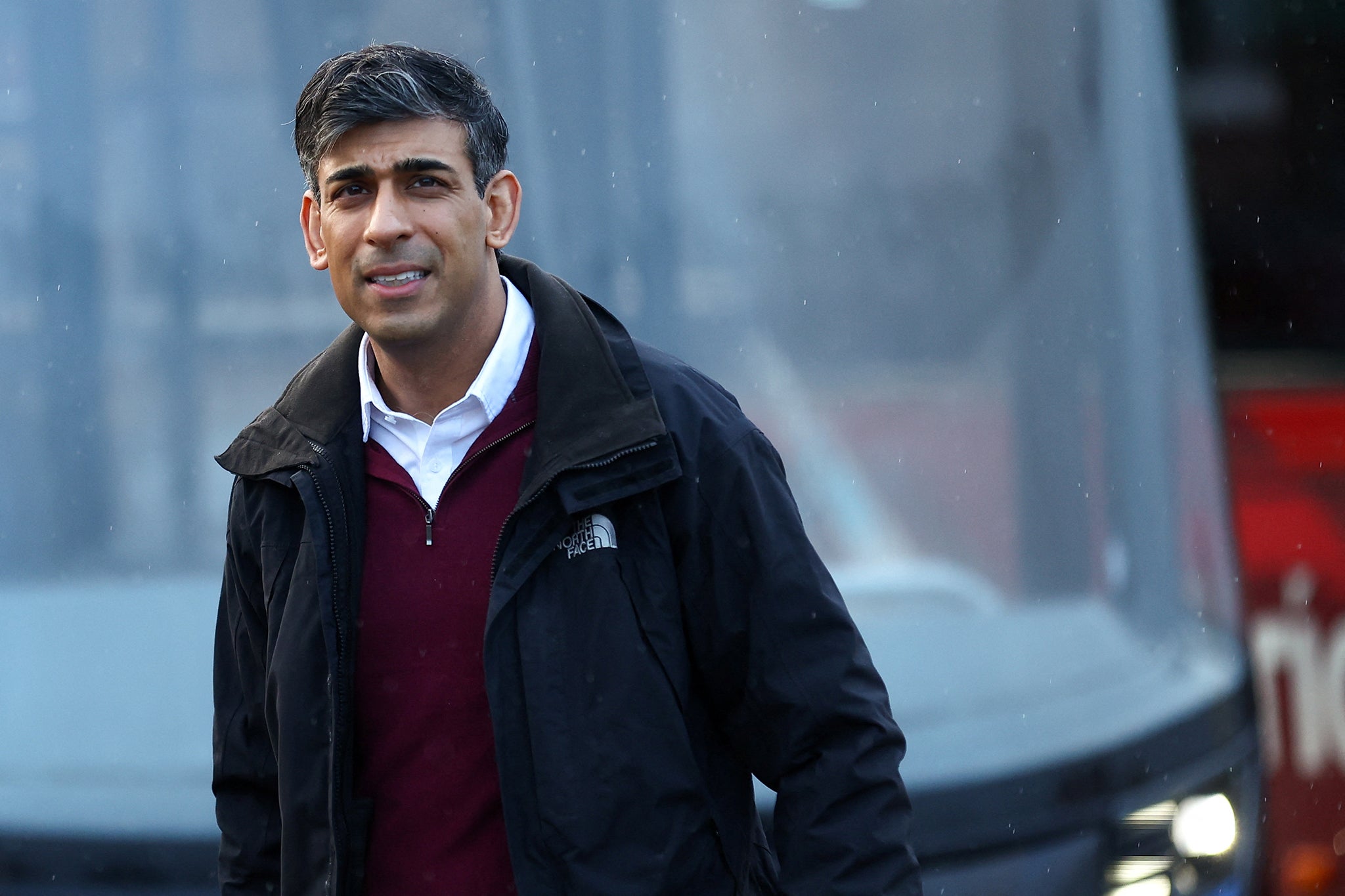Rishi Sunak’s Rwanda bill comes under fire from Tory and Labour peers
Tory and Labour peers warned of their belief that the Safety of Rwanda Bill would set a dangerous precedent for Britain
Your support helps us to tell the story
From reproductive rights to climate change to Big Tech, The Independent is on the ground when the story is developing. Whether it's investigating the financials of Elon Musk's pro-Trump PAC or producing our latest documentary, 'The A Word', which shines a light on the American women fighting for reproductive rights, we know how important it is to parse out the facts from the messaging.
At such a critical moment in US history, we need reporters on the ground. Your donation allows us to keep sending journalists to speak to both sides of the story.
The Independent is trusted by Americans across the entire political spectrum. And unlike many other quality news outlets, we choose not to lock Americans out of our reporting and analysis with paywalls. We believe quality journalism should be available to everyone, paid for by those who can afford it.
Your support makes all the difference.Rishi Sunak’s Rwanda deportation bill faced fresh opposition from Conservatives and Labour in the House of Lords.
Tory and Labour peers warned of their belief that the Safety of Rwanda Bill would set a dangerous precedent for Britain.
The PM’s bill, which aims to overcome a Supreme Court ruling blocking the government from deporting asylum seekers to Rwanda, is making its way through the upper chamber.
After Mr Sunak’s deportation scheme with the east African nation was ruled unlawful, based on judges’ assessment that Rwanda is not a safe country for asylum seekers, the prime minister introduced a bill deeming the country safe in British law.

It has passed the House of Commons, but is likely to face amendments in the Lords which could threaten the government’s ability to put asylum seekers on planes before the general election expected this autumn.
On Monday Lord Cameron, the foreign secretary, warned peers it would be “wrong” to frustrate the bill, arguing that “we need to get this Bill through Parliament”.
But, debating the bill on Monday evening, peers from across the upper chamber tore into the bill’s implications.
Tory peer Lord Tugendhat said: "I have been a member of Parliament for a very long time on and off, and I have been a member of the Conservative party for some 66 years when I counted it up, and I do have to say that I find it quite extraordinary that the party of Margaret Thatcher should be introducing a Bill of this kind."
The Conservative grandee, whose nephew is security minister Tom Tugendhat, claimed the Bill could have an impact on the UK’s perception as a "marvellous place to do business because of our great respect for the rule of law".
Lord Tugendhat added: "What we are being asked to do really represents the sort of behaviour that the world associates with despots and autocracies, not with an established democracy, not with the Mother of Parliaments. It is a Bill we should not even be asked to confront, let alone pass."
Meanwhile Tory peer Viscount Hailsham said it was “manifestly untrue” to claim parliament believes Rwanda is a safe country for asylum seekers.
“It is simply untrue to state that it is the judgement of Parliament that Rwanda is a safe country. That maybe the opinion of the House of Commons", the peer said, noting MPs can come under pressure from party whips, and adding "but what is absolutely certain is that it is not the opinion of this House."
It came as peers debated the merits of amendments to the asylum bill. Those put forward include measures that would include a “sunset clause” into the bill and require the government to restate that Rwanda is a safe country every six months.
It is likely that if the bill returns to the House of Commons with any amendments attached, the government will seek to strip them out. The bill would then be sent back to the House of Lords in a process known as ping-pong.
During the debate, Labour peer Baroness Chakrabarti warned the bill “threatens both the domestic rule of law, especially the separation of powers, and the international rules-based order”.
The barrister and human rights activist led calls for the Government to heed advice from the UN about whether Rwanda is safe before beginning deportations, adding: "I will assume that the Government does not want to put the executive of the United Kingdom on a collision course with our Supreme Court or our international legal obligations.
"So amendments in this group seek to offer a way through the stalemate for people of good will from all sides of your Lordships House."
Former justice secretary Lord Falconer told peers that the bill, in its current form, could open the door to corrupt prime ministers overruling the courts to help their cronies.
He said: “Suppose the prime minister has a friend or a crony in the House of Commons who is convicted in a court of corruption of some sort, and then the prime minister presents a bill to Parliament saying it it the judgment of Parliament that ‘Snooks MP’ actually wasn’t able to present this new evidence to the criminal court that convicted him, so it is the judgment of Parliament that Snooks MP is innocent.
"That is the route that this particular Bill takes Parliament down."

Join our commenting forum
Join thought-provoking conversations, follow other Independent readers and see their replies
Comments